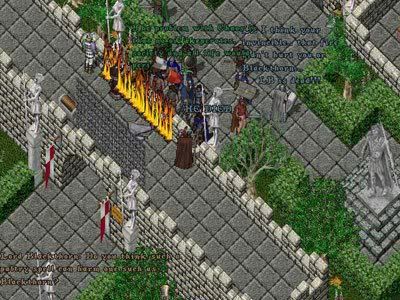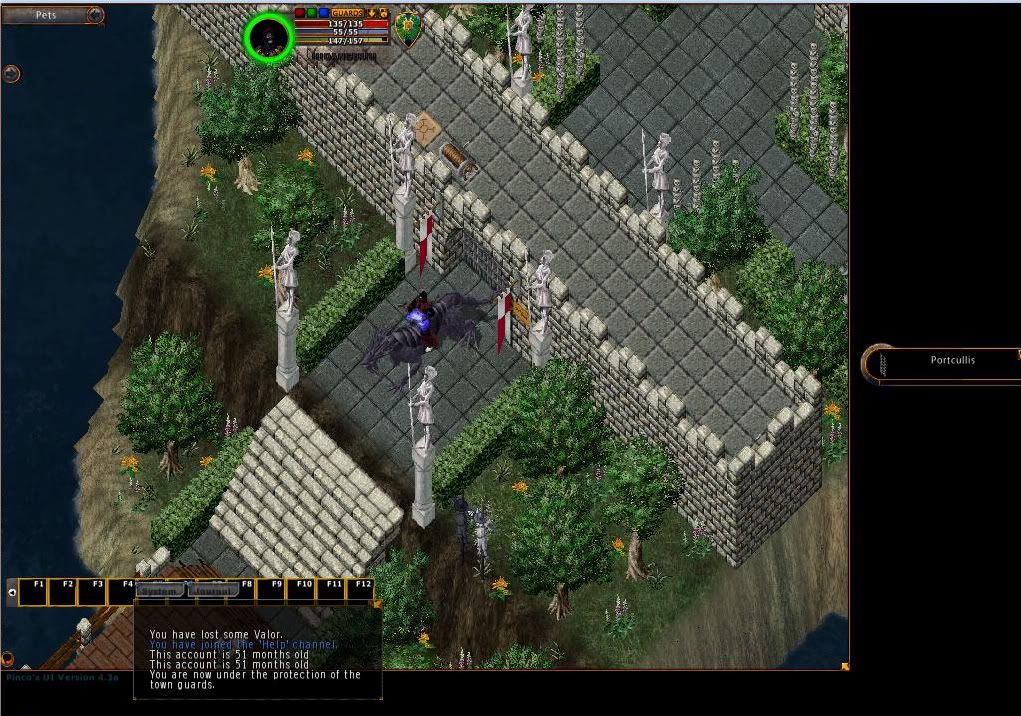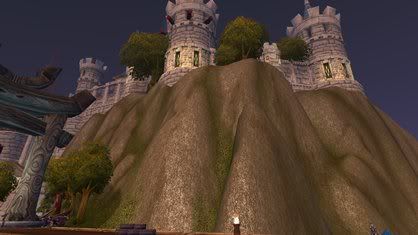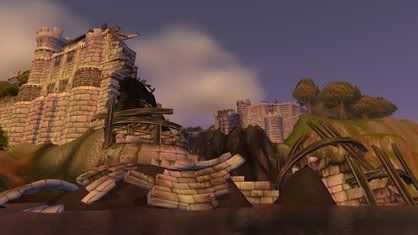Free to play seems to be all the rage these days, but really how can these companies offer MMOs for free when things like server hosting and bandwidth still cost money?
Well part of it is in deciphering what exactly a company considers "Free". Lets look at a couple of games that claim to have F2P options but in reality with every F2P program there is a catch as well as show some of the Pro's and Con's.
Atlantica Online
For those of you who aren't familiar with this title, Atlantica Online (AO for the rest of this section), is a F2P MMO that combines the party element of traditional RPG's into it's game play. You have your main and you can hire up to 8 mercenaries as you progress in levels to fight with you. You have the ability to adjust their combat configuration withing a 3x3 grid and combat works on a turn based system. One of the interesting concepts added into this game is the "Mentor" program, where veteran players actually gain benefits for mentoring newer players.
The Catch: Outside of special events all mounts, and cosmetic outfits are available only via their game store, or from other players who have purchased these items from their game store.
Pros: This game is free, nothing has to be purchased to enjoy the game fully. It's systems designed to encourage Veteran Newbie interactions is a refreshing change.
Cons: Like many MMO's this game was hit with a bout of Bot programs. Unfortunately their methods of combating cheating is rather extreme. Currently you not only use a User/Pass combination to log in you also have a PIN number you must enter to log into the game meaning there is a third log in variable that has to be remembered. In all areas of the game you now are limited on how long you can continue to slay beasts before you have to move to a different area. Like all games it's RNG system for determining loot drops sometimes means you'll expend this time limit well before you collect required quest item loot drops and have to wait til you can hunt in that region again. This can become rather frustrating.
Lord of the Rings: Online
Lord of the Rings: Online is an offering from Turbine the same company that develops Dungeon's and Dragons Online. This game however takes you into the world of J.R.R. Tolkien's Middle-Earth, and you'll assume the roll of one of the nameless heroes who follow in the wake of the Fellowship of the Ring and help establish order in the lands of the Free People as the Shadow of Mordor encroaches.
The Catch: While this game is free to play it encourages players to make store purchases, or subscribe by restricting access to some things that Subscription players have access too, such as PvP, additional inventory slots, a currency cap, the ability to use "destiny points" for buffs, and quest content in many areas.
Pros: It's Middle-Earth at it's finest, and there are many options for players to access the missing "perks" while spending as little as possible. One means is to grind in-game and earn "Turbine Points" the game store currency by completing deeds which generally involve discovering all areas inside a region, completing a specific number of quests, or by slaying a set number of monsters in each region. This is a slow method yet it allows you to get the most out of the game for free. Alternatives include purchasing a box of either the original Shadows of Angmar or Mines of Moria and using the included 30 days game time code to unlock many of the restrictions by giving you VIP access for those 30 days. Other options currently available is to purchase the Rise of Isengard expansion pre-order pack that includes the quest packs for many of the areas in the game for F2P people, but does not remove the currency and inventory slot restrictions.
Other Pros to this game is it's friendly community, lack of cheating, and pro-active stance on combating RMT. It's in game systems work remarkably well at keeping the game economy balanced and it's crafting systems are designed to encourage player to player trading.
Cons: If you truly want F2P you'll find many of the restrictions are severely frustrating, especially the currency cap which prevents you from accessing better housing, and inventory restrictions which will leave you running to find a vault keeper every 5 minutes when you'd rather be fighting monsters. Currently there is no way to access PvP called Monster Play in LOTRO as a F2P player.
This covers games that I'm intimately familiar with, but I'm sure it shows how F2P games take different approaches towards funding themselves. I do think this is a good thing for online gaming, with the influx of social gaming on sites like Facebook etc. offering up fun, engaging games to the public for little to no money is a great idea for us as players. The ability for us to decide how much we spend and when we spend it and not be stuck in a reoccurring subscription plan also has more appeal in today's tough economic times. Another point to consider, is F2P games generally have a higher number of players than their counterpart Pay 2 Play games, DDO and LOTRO saw greatly increased revenue and profits by switching from a Pay 2 Play to a F2P model. The increase in players added more subscriptions as players became hooked on the game, and the additional income from people making store point purchases were just icing on the cake.
So where does the popularity of the various F2P models lead us? To me it leads to more options for us as players. We can sample more games without having to squeeze as much out of a 10 - 15 day trial as possible to decide if we actually like the game or not. F2P is also better for casual gamers that only have a couple of hours a week to play, they aren't sucked into paying for a game they spend little time with compared to the avid gamer who spends 10+ hours a week meaning they get more for what they do actually spend in game.
Well part of it is in deciphering what exactly a company considers "Free". Lets look at a couple of games that claim to have F2P options but in reality with every F2P program there is a catch as well as show some of the Pro's and Con's.
Atlantica Online
For those of you who aren't familiar with this title, Atlantica Online (AO for the rest of this section), is a F2P MMO that combines the party element of traditional RPG's into it's game play. You have your main and you can hire up to 8 mercenaries as you progress in levels to fight with you. You have the ability to adjust their combat configuration withing a 3x3 grid and combat works on a turn based system. One of the interesting concepts added into this game is the "Mentor" program, where veteran players actually gain benefits for mentoring newer players.
The Catch: Outside of special events all mounts, and cosmetic outfits are available only via their game store, or from other players who have purchased these items from their game store.
Pros: This game is free, nothing has to be purchased to enjoy the game fully. It's systems designed to encourage Veteran Newbie interactions is a refreshing change.
Cons: Like many MMO's this game was hit with a bout of Bot programs. Unfortunately their methods of combating cheating is rather extreme. Currently you not only use a User/Pass combination to log in you also have a PIN number you must enter to log into the game meaning there is a third log in variable that has to be remembered. In all areas of the game you now are limited on how long you can continue to slay beasts before you have to move to a different area. Like all games it's RNG system for determining loot drops sometimes means you'll expend this time limit well before you collect required quest item loot drops and have to wait til you can hunt in that region again. This can become rather frustrating.
Lord of the Rings: Online
Lord of the Rings: Online is an offering from Turbine the same company that develops Dungeon's and Dragons Online. This game however takes you into the world of J.R.R. Tolkien's Middle-Earth, and you'll assume the roll of one of the nameless heroes who follow in the wake of the Fellowship of the Ring and help establish order in the lands of the Free People as the Shadow of Mordor encroaches.
The Catch: While this game is free to play it encourages players to make store purchases, or subscribe by restricting access to some things that Subscription players have access too, such as PvP, additional inventory slots, a currency cap, the ability to use "destiny points" for buffs, and quest content in many areas.
Pros: It's Middle-Earth at it's finest, and there are many options for players to access the missing "perks" while spending as little as possible. One means is to grind in-game and earn "Turbine Points" the game store currency by completing deeds which generally involve discovering all areas inside a region, completing a specific number of quests, or by slaying a set number of monsters in each region. This is a slow method yet it allows you to get the most out of the game for free. Alternatives include purchasing a box of either the original Shadows of Angmar or Mines of Moria and using the included 30 days game time code to unlock many of the restrictions by giving you VIP access for those 30 days. Other options currently available is to purchase the Rise of Isengard expansion pre-order pack that includes the quest packs for many of the areas in the game for F2P people, but does not remove the currency and inventory slot restrictions.
Other Pros to this game is it's friendly community, lack of cheating, and pro-active stance on combating RMT. It's in game systems work remarkably well at keeping the game economy balanced and it's crafting systems are designed to encourage player to player trading.
Cons: If you truly want F2P you'll find many of the restrictions are severely frustrating, especially the currency cap which prevents you from accessing better housing, and inventory restrictions which will leave you running to find a vault keeper every 5 minutes when you'd rather be fighting monsters. Currently there is no way to access PvP called Monster Play in LOTRO as a F2P player.
This covers games that I'm intimately familiar with, but I'm sure it shows how F2P games take different approaches towards funding themselves. I do think this is a good thing for online gaming, with the influx of social gaming on sites like Facebook etc. offering up fun, engaging games to the public for little to no money is a great idea for us as players. The ability for us to decide how much we spend and when we spend it and not be stuck in a reoccurring subscription plan also has more appeal in today's tough economic times. Another point to consider, is F2P games generally have a higher number of players than their counterpart Pay 2 Play games, DDO and LOTRO saw greatly increased revenue and profits by switching from a Pay 2 Play to a F2P model. The increase in players added more subscriptions as players became hooked on the game, and the additional income from people making store point purchases were just icing on the cake.
So where does the popularity of the various F2P models lead us? To me it leads to more options for us as players. We can sample more games without having to squeeze as much out of a 10 - 15 day trial as possible to decide if we actually like the game or not. F2P is also better for casual gamers that only have a couple of hours a week to play, they aren't sucked into paying for a game they spend little time with compared to the avid gamer who spends 10+ hours a week meaning they get more for what they do actually spend in game.









